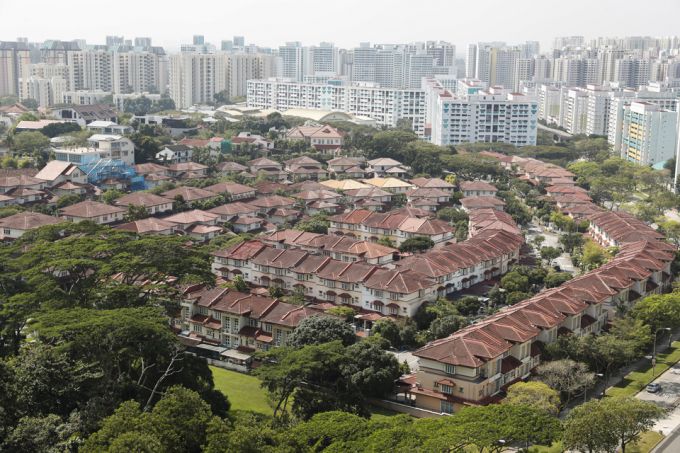Singapore Budget 2018: Buyer’s stamp duty hike better than wealth taxes
WHILE some sort of tax on the wealthy had been expected in Monday’s Budget, few thought it would take the form of a hike in buyer’s stamp duty (BSD).
The move however, has received praise from tax consultants and other experts. They say it’s less disruptive and easier to implement than alternatives such as capital gains tax or estate duty, which could hurt Singapore’s reputation for wealth management and its competitiveness as a financial hub.
“The introduction of any wealth tax – gift tax, inheritance tax – would run contrary to the initiatives that Singapore has rolled out over the years in successfully developing the wealth management industry,” said Goh Siow Hui, tax services partner at Ernst & Young Solutions.
Effective Feb 20, the top marginal BSD rate was raised from 3 per cent to 4 per cent, applying to the portion of residential property value in excess of S$1 million.
In the Budget speech, Finance Minister Heng Swee Keat framed the move as one aimed at making Singapore’s tax system more progressive.
He added: “We will continue to study options to ensure that our tax system remains progressive.”
While there may be other measures that also fall under a progressive tax system, experts say these are less appealing for various reasons.
A rise in personal income tax would have a larger political cost and be especially hard to digest alongside the future increase in goods and services tax, said Maybank Kim Eng economist Chua Hak Bin.
It could also affect Singapore’s ability to attract top talent, said Shantini Ramachandra, tax partner and Deloitte private (tax) leader at Deloitte Singapore and Southeast Asia.
Wealth taxes such as estate duty or capital gains tax, too, would likely hurt Singapore’s ambition to be one of the world’s leading private wealth centres, she added.
KPMG Singapore principal tax consultant Leung Yew Kwong noted that the government’s reasons for abolishing estate duty in 2008 remain valid today: encouraging wealthy individuals to bring their assets here; letting ordinary Singaporeans pass their income and assets to their family without being taxed again; and making Singapore an attractive place where wealth is invested and built up, by foreigners and Singaporeans alike.
As for capital gains tax, EY’s Ms Goh said its absence keeps Singapore’s tax system simple and is arguably a main factor that attracts foreign investors.
She noted that out of the S$2.7 trillion of assets under management (AUM) here, more than three-quarters of the funds were sourced outside Singapore, according to a 2016 Monetary Authority of Singapore survey.
“The risk is that such AUM may as easily leave Singapore if the country is no longer the straightforward and efficient jurisdiction it is currently known to be,” she said.
In contrast, the BSD hike signals a commitment to progressivity “without introducing any new taxes that could be viewed as a direct wealth tax”, as Baker McKenzie Wong & Leow head of tax Allen Tan put it.
Such perceptions matter. In the longer term, investors may be discouraged from accumulating wealth here if they fear some future measure may hit their savings, said Dr Chua.
“The government will have to manage the external perception (so it is seen) as pursuing ‘socially inclusive’ and not ‘anti-wealth’ policies.”
Demerits of other taxes aside, the BSD hike has its own advantages.
It is easier to implement than the introduction of a new tax, as the mechanism for collecting BSD is already in place.
Unlike taxes on the holding or appreciation of wealth, BSD is tied to property transactions and is relatively easy to monitor, noted Ms Goh.
In addition, the BSD hike is also seen as a response to the current en bloc fever, said DBS economist Irvin Seah: “It’s a gentle reminder to property market players.” The message was not lost on investors, with several property blue chips taking a beating on Tuesday.
“This is almost like killing two birds with one stone,” he said. “You achieve two outcomes with one policy measure.”
KPMG’s Mr Leung notes, though, that the hike is not meant as a property cooling measure, as the higher burden is “not so heavy to deter purchases”, whether by individuals or by developers.
Source: http://www.businesstimes.com.sg/government-economy/singapore-budget-2018/singapore-budget-2018-buyers-stamp-duty-hike-better-than


 English
English




